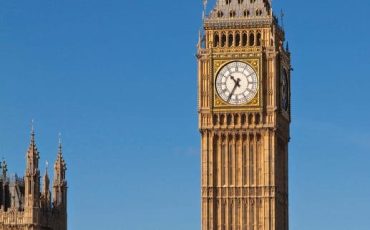On 26 October 2023, the Economic Crime and Corporate Transparency Act received Royal Assent. The Act has been put in place to tackle money laundering in the UK. There are major changes coming to Companies House in terms of the Act, which will change Companies House role from a recipient of information to a more active gatekeeper in the fight against financial crime.
Over the last few months, we have been producing a series of blogs to highlight the forthcoming reforms that the new Act will bring into effect. It should however be noted that the provisions within the Act will not become effective at the same time. Further legislation will be required to bring them into force.
Our earlier blogs cover the elements of Verification of directors and PSCs and Filing at Companies House and ID Verification. This blog will highlight the Enhanced Powers for Companies House and what they are able to do under the Act.
Examples of when the new powers may be used:
- Forming ‘phoenix’ companies to defraud creditors
- Where the company name is:
- part of the campaign to target (damage) an unrelated company, organisation or individual
- name of international organisation/institution, e.g. a bank and being used without permission
- There is intelligence of fraud or other criminal activity
- There are outstanding matters that mean further checks should be conducted
Documents with Inconsistencies
The current powers of Companies House are that they must accept a document if properly delivered even if it is inconsistent with the current register. Once accepted, Companies House can then give inconsistency notice and require the company to resolve.
The new powers will mean that Companies House can refuse to accept and register a document if it appears to be inconsistent with other information either held by or available to Companies House; and they have reasonable grounds to doubt it complies with any requirement as to its contents.
These powers are extended to include inconsistencies already on the register. They can query documents for inconsistencies between the company and records kept by Companies House, not just information on the register. Companies House can require the company to take all reasonable steps as are reasonably open to it to resolve the inconsistency within 14 days. Failure to comply is an offence by the company as well as every officer who is in default.
Remove Documents from the Register
Under their current powers, Companies House can administratively remove certain material, but not if it has legal consequences.
The new powers are extended to allow removal even if it has legal consequences. These can be exercised on Companies House’ own initiative or on application. Companies House must be satisfied that the interest of the company or the applicant, outweigh interest of other persons in the material continuing to appear on the register.
Company Names
Companies House also has new powers to query and reject name changes. If the name is queried and evidence is not received or unsatisfactory, the company can be asked to change the name within 28 days. If the company fails to do so, Companies House can change the name.
New Data Sharing Powers
Any person may disclose information to Companies House which relates to any of Companies House’s functions such as:
- Law enforcement: Police Force, Insolvency Service, etc.
- Public, regulatory and supervisory bodies: Electoral Commission, HMRC, Charity regulators
- Insolvency practitioners
Companies House may also proactively disclose information to any person for purposes connected to Companies House functions or to a public authority.
Analyse Information for Crime Prevention or Detection
Companies House must carry out such analysis of information within their possession as the registrar considers appropriate for the purposes of preventing or detecting crime; and can disclose results to public authorities.
New Financial Penalties
Companies House can be given power to impose a financial penalty if satisfied beyond reasonable doubt that the person has engaged in conduct amounting to a relevant offence under the Companies Act 2006.
The Act also brings in further changes and further blogs will be published in relation to the Economic Crime and Corporate Transparency Act in due course.
If you, or anyone in your organisation, requires further advice or assistance in this regard, please contact our team.






